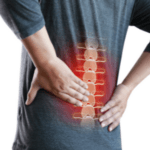The HSE is satisfied that there is no need to take enforcement action against a Scottish cargo-handling company, whose failings in regard to maintenance and inspection of a mobile crane contributed to a car collision, in which three people lost their lives.
Barry Copeland’s wife and two daughters were killed in January 2008 when their car crashed into another vehicle on the A92, near St Cyrus, Aberdeenshire, after coming into contact with hydraulic oil, which it is thought had leaked from a hole in a mobile crane’s suspension hose.
A fatal accident inquiry held in January this year found that the crane operator, William Whyte Cargo Handlers, did not have in place for the crane a programme of planned preventative maintenance. The firm’s employees also erroneously regarded the six-monthly inspection of the crane, in line with LOLER 1998, as applying also to its roadworthiness.
According to the sheriff, proper maintenance of the crane would have resulted in observation of the hose fault, which, if corrected by re-routing, would have reduced the likelihood of the failure that caused the leakage of hydraulic oil at the scene of the crash.
The sheriff called on the Government, as a matter of urgency, to remove the current exemption applying to mobile cranes from undergoing a compulsory regular MOT. He also recommended that report forms for thorough examination under LOLER be revised to include clear warnings that such inspections only relate to the crane’s lifting operations and that it remains the crane owner’s duty to ensure that the vehicle is roadworthy and in a good condition at all times.
Since losing his family, Mr Copeland has been campaigning for mobile cranes to be subject to regular MOTs. Speaking after recently picking up an award from IOSH in recognition of his lobbying efforts, he said: “Every time I see a large mobile crane travelling on a road – a common occurrence even on dual carriageways and motorways – I’m reminded how bizarre it is that they aren’t required to have a MOT. In fact, the Department for Transport (DfT) estimates that there are some 40,000 vehicles on the UK’s roads that are exempt from annual testing.
“All work-related vehicles using Scotland’s roads should be subject to the same checks and proper MOTs, which reduce the risk faulty parts and equipment might present to other drivers. I just want to try to reduce the chances of the same thing happening to somebody else and hopefully make Scotland’s roads a little safer in the future.”
The DfT insists that it is considering the issue but it is thought a change in the law could be some way off. In a statement to SHP, Road safety minister Stephen Hammond said: “This was a tragic incident and I would like to extend my sympathies to Mr Copeland. I am committed to making our roads a safer place and we are looking into the implications of introducing testing for mobile cranes. I would like to take this opportunity to remind mobile crane drivers that they must ensure their vehicles are fit for the road.”
The road-traffic accident was investigated by the Police and not reported to the HSE, whose regulatory remit covers only the lifting systems of cranes on site. The Police did not seek HSE input to investigate underlying alleged managerial failings by the crane company and, at the fatal accident inquiry, the sheriff accepted the Executive’s policy position.
Asked if any enforcement action had been taken against the firm, an HSE spokesperson told SHP: “Following the conclusion of a fatal accident inquiry involving William Whyte Cargo Handlers Ltd, the HSE visited the company where certain deficiencies were noted, which resulted in an action plan being formulated at the request of the HSE.€
Approaches to managing the risks associated Musculoskeletal disorders
In this episode of the Safety & Health Podcast, we hear from Matt Birtles, Principal Ergonomics Consultant at HSE’s Science and Research Centre, about the different approaches to managing the risks associated with Musculoskeletal disorders.
Matt, an ergonomics and human factors expert, shares his thoughts on why MSDs are important, the various prevalent rates across the UK, what you can do within your own organisation and the Risk Management process surrounding MSD’s.

